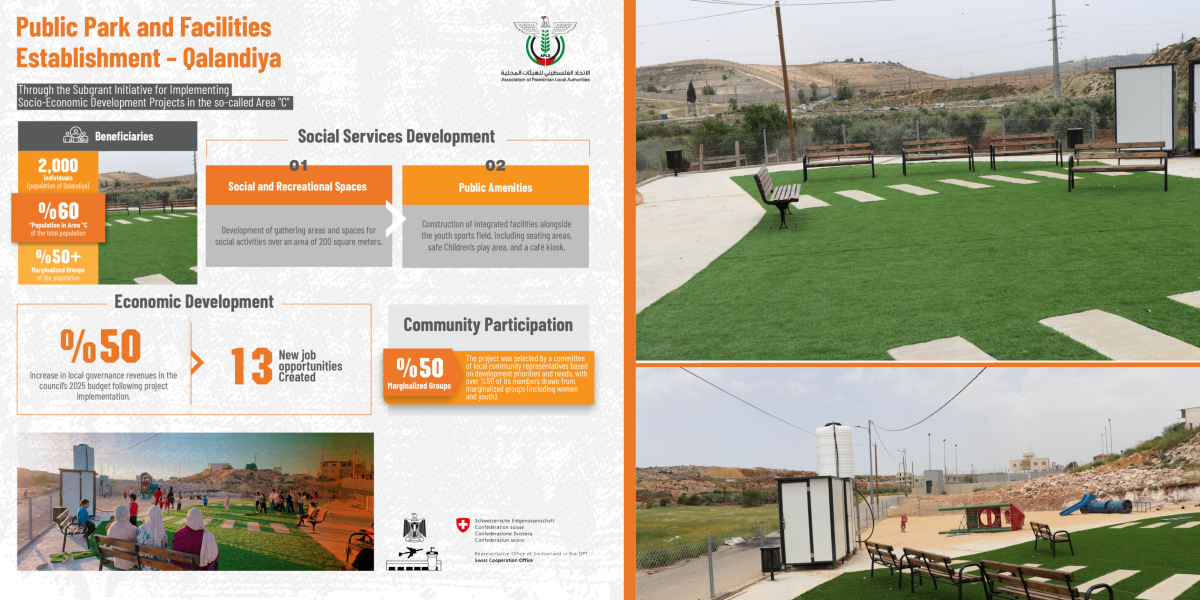Qalandiya | Public Park and Facilities Establishment
.“We passed by the beloved’s home, but were turned away by the law of the enemy and its walls.” The beloved’s home is Jerusalem, and the rejection was here in Qalandiya. The town, only minutes away from the city, has for more than two decades been hemmed in by walls and checkpoints. The short road became a maze of waiting, the air thick with dust and congestion, and daily life governed by permits and military orders.
Amid this reality, where spaces are scarce and public life is stifled, the project took shape: the rehabilitation of public spaces and facilities in Qalandiya. It centered on upgrading the existing five-a-side football field by developing 1,200 square meters of endowment land. The aim was not merely to repair a playground but to transform it into a multi-functional community space: a garden planted with trees, shaded seating areas for visitors, four public restrooms, and small kiosks serving both as services for residents and a source of income for the local council.
The impact soon reached into daily life: children finally had a safe place to play, women expanded their activities in a space that welcomed their presence, and young people took part in management and work—including persons with disabilities. The local council, in turn, gained new revenue streams that strengthened its ability to provide other services, while the site created additional room for the women’s center and community activities long absent from the town.
And because no space is complete without its people, community participation became the cornerstone of the project. A local committee—half of it women and youth—set the priorities, while residents followed up on the implementation with a sense of responsibility and belonging. In this way, the initiative became more than an engineering intervention; it turned into a genuine experience of partnership and collective ownership.
The project in Qalandiya was never meant as a definitive solution, but as a practical step within a longer effort led by the local council to confront the isolation imposed by the wall and checkpoints. It is a concrete attempt to secure public spaces that safeguard people’s dignity and strengthen their resilience. Above all, it stands as a reminder that development here is not a luxury, but a daily act of steadfastness—and that communities, even under constraint, can carve out new spaces for life.


This project is part of the Sub-Grant Program, which is implemented by the Association of Palestinian Local Authorities (APLA) in Area C. The initiatives under this program are not merely about infrastructure improvement, but serve as practical tools to keep communities rooted in their land, expand spaces of life in the face of closure and confiscation, and turn development into a daily act of resilience that safeguards rights, memory, and existence.
funded by: the European Union and the Swiss Agency for Development and Cooperation (SDC)

 Key Indicators
Key Indicators
 Cultural Heritage
Cultural Heritage
 Public Parks
Public Parks
 Renewable Energy
Renewable Energy
